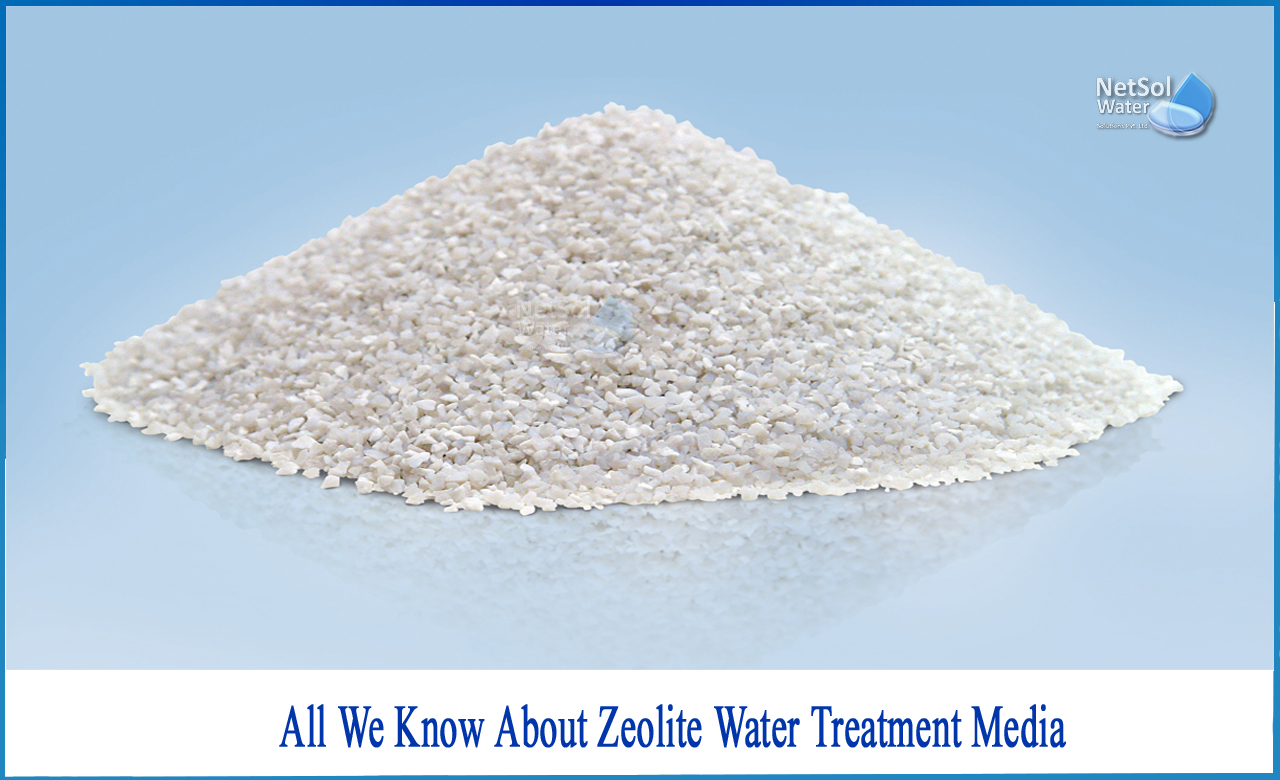What is the use of zeolite in water treatment?
Water treatment is the process of removing contaminants (microorganisms, suspended particles, or dissolved compounds) from drinking water, industrial effluent, hot tubs, and other similar sources. Sand and other granular materials have frequently been employed to filter out contaminants. However, studies show that very pure zeolite outperforms ordinary granular media in terms of natural filtration and absorbency in aquatic conditions.
Zeolite can treat for:
- Heaviest metals
- Hydrocarbons
- Bacteria
- Ammonia
- Phosphates and nitrates
- Oils
- Odour
Zeolites Applications
Natural zeolite is a novel and extremely effective natural filter media for water filtration. It outperforms sand and carbon filters, providing purer water and better throughput rates with less maintenance. It outperforms sand in many ways and may be used to directly replace sand in a standard sand filter.
In industrial treatments, zeolites are used for three things: catalysis, gas separation, and ion exchange.
1: Catalysis: Zeolites are particularly helpful as catalysts for a variety of key organic-molecule processes.
Cracking, isomerisation, and hydrocarbon synthesis are the most important.
Zeolites have the ability to stimulate a wide range of catalytic processes, including acid-base and metal-induced reactions. Zeolites can also be employed as acid catalysts and as supports for active metals or reagents.
Zeolites can be shape-selective catalysts by either transition state selectivity or by excluding competing reactants based on molecular diameter. They have also been utilized as catalysts for oxidation. The reactions can occur within the pores of the zeolite, allowing for improved product control.
The primary industrial application areas are petroleum refining, the generation of synfuels, and the manufacturing of petrochemicals.In petrochemical refineries, synthetic zeolites are the most essential catalysts.
2: Adsorption: Zeolites may adsorb a wide range of compounds. This comprises drying, purification, and separation applications.They can extract water at extremely low partial pressures and are particularly effective desiccants, retaining up to 25% of their weight in water. They can separate isomers and combinations of gases, as well as remove volatile organic compounds from air streams. The ability of zeolites to separate gases is an extensively utilized attribute.
Zeolite's porous structure may be utilized to "sieve" molecules of certain size and allow them to enter the pores. This feature may be fine-tuned by adjusting the size and amount of cations around the pores in the structure. Other uses that can occur within the pore include the polymerisation of semi conducting and conducting polymers to generate materials with extraordinary physical and electrical properties.
3: Ion exchange: Hydrated cations within zeolite pores are weakly connected to the zeolite framework and can easily interchange with other cations in aqueous environments. Water softening devices and the usage of zeolites in detergents and soaps are examples of this.
Zeolites are most often found in detergent formulas, where they have supplanted phosphates as water-softening agents. This is accomplished by exchanging the sodium in the zeolite for the calcium and magnesium in the water. Radioactive ions can even be removed from polluted water.
Is it possible to employ Zeolite water treatment media in the aquaculture industry?
The load of fish in the water in a fish farm might be quite high.This causes fast contamination of the water, and as a result, dangerous material concentrations can rise rapidly. As a result, significant water filtration is required. Zeolites can be employed at several stages of the purification process, including as a secondary filtering unit after biological purification and/or aeration; as a support material for bacteria; and as a filter medium for the simultaneous removal of solid and suspended particles and undesirable ions.
Is it possible to employ Zeolite water treatment media in the agriculture industry?
Zeolites have long been utilized in agriculture. A 5% supplement to animal feeds lowers ammonia and odour emissions, enhances feed utilization, aids in mycotoxin absorption, and may provide trace nutrients.
Conclusion
The liquid and vapour absorption properties of zeolites are used in industrial applications. It is an excellent granular oil/chemical spill cleaning material since it is inert and safe to use. As a result, Zeolite Water Therapy Media appears to be an excellent treatment.
Netsol Water is Greater Noida-based leading water & wastewater treatment plant manufacturer. We are industry's most demanding company based on client review and work quality. We are known as best commercial RO plant manufacturers, industrial RO plant manufacturer, sewage treatment plant manufacturer, Water Softener Plant Manufacturers and effluent treatment plant manufacturers. Apart from this 24x7 customer support is our USP. Call on +91-9650608473, or write us at enquiry@netsolwater.com for any support, inquiry or product-purchase related query.



